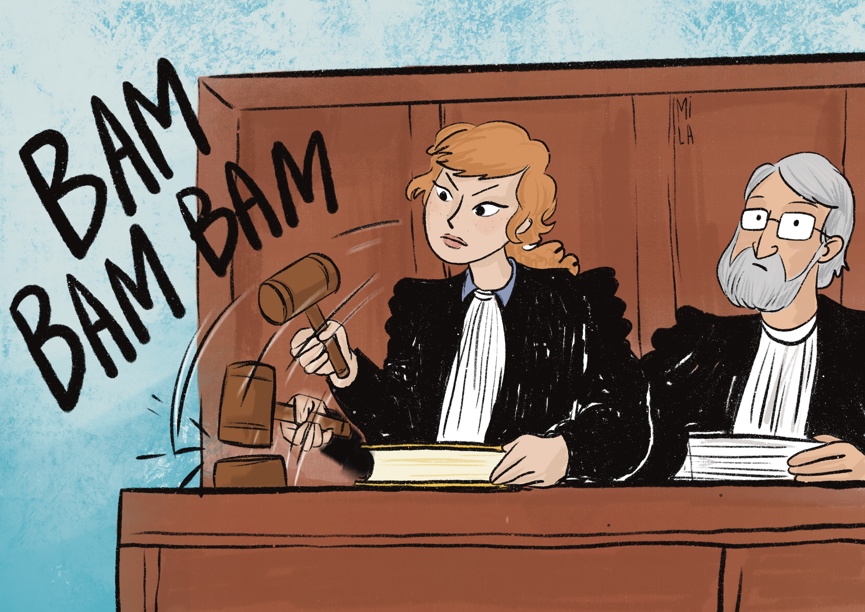- Real Estate, Renting and Co-ownership , Tax Law
- tax abuse in demolition and reconstruction projects , tax abuse , demolition and reconstruction project , building contract , property developer , temporary VAT scheme , renovation , split sale of land and buildings
Our articles of 28 November 2023 and 30 January 2024 have already treated in detail the new VAT regime applicable to demolition and reconstruction projects as from 1 January 2024. This regulation is particularly galling for property developers, turnkey companies and private investors.
The same can be said about a recent Supreme Court judgment.
In what follows, we will first discuss that judgment, and then link it to the new VAT regime. Finally, some topics for practice will be broached.

1. Supreme Court confirms tax abuse
The sale of a demolition and reconstruction project was formerly subject to the 21% VAT rate (if converted into a new one). For private buyers (without the right to deduct VAT), this tax represents a significant additional cost.
To deal with this, a creative solution was devised. This involved selling a property in its existing condition (including the land) to the buyer, coupled with a building contract (often through an associated company) for the purpose of thoroughly renovating the property. In this way, the existing property could be sold with registration duties (10% at the time and now 12%), while the renovation works could be invoiced at the 6% VAT rate.
However, this practice is considered by the administration to be tax abuse. The administration is of the opinion that the two transactions are inextricably linked, making them a complex transaction that is subject in its entirety to the 21% VAT rate.
In this, the administration was followed, among others, by the Court of First Instance of Liège and subsequently by the Court of Appeal of Liège. According to this case law, the buyer's intention was not to conclude two separate contracts, but rather to buy a completely renovated property on which the normal VAT rate of 21% was due.
The Court of Cassation upheld the judgment of the Court of Appeal of Liège.
Because of the tax abuse, VAT will not only be due on the existing buildings, but also on the land. The registration duties previously paid can in theory be recovered through an administrative procedure. But in the case of a long-running dispute, it cannot be excluded that the deadline to start such a procedure has already expired. This runs the risk that both registration duties and VAT will have to be paid on the land and existing buildings, which is obviously a financial nightmare.
Therefore, a property developer facing a tax audit within the context of a similar case would be well advised, under all reservations, to already initiate an administrative procedure with a view to refunding registration fees already paid.
2. What about the new VAT scheme for demolition and reconstruction projects?
The procedure described above had been relegated to the background in recent years. Indeed, since 1 January 2021, a temporary VAT scheme existed under which the sale of demolition and reconstruction projects could take place at the 6% VAT rate.
However, this favourable arrangement came to an end early this year (see our articles of 28 November 2023 and 30 January 2024 on this subject). This puts property developers back in the original situation where the sale of demolition and reconstruction projects is subject to the 21% VAT rate.
Therefore, property developers who intend to find a way around this by using the method described above should take the Supreme Court judgment into account. After all, the potential benefit they envisage in developing such a project might turn out to be a financial hangover.
3. No tax abuse in case of sufficient non-tax motives
For there to be abuse, the administration must demonstrate that a tax advantage is granted contrary to the purpose of the VAT scheme (objective element) and that the totality of objective factors shows that obtaining that advantage is the essential purpose of the operation (subjective element).
If the taxpayer can show that its operation was indeed co-supported by other relevant (non-tax) motives, there will be no tax abuse.
Thus, in the case to be finally assessed by the Court of Cassation, there was indeed tax abuse according to the Court. Here, the following specific elements were taken into account:
- the real estate project was presented to the buyers as the purchase of completed appartments;
- the renovation contracts were signed on the same day as the preliminary sales agreement;
- the price of the appartment, including the renovation, was known exactly at the time the purchase option was taken;
- the renovation works were largely paid for before the notarial deed of sale was drawn up.
If these specific elements are not present, it cannot be ruled out that there is no fiscal abuse. The same applies if the company selling the land and existing buildings and the company responsible for renovation are completely independent in terms of their shareholder structure. A joint venture could then be set up between the two companies. In such a situation, the 6% VAT rate might still be applicable.
4. Not to be confused with split sale of land and buildings
The practice described above should not be confused with another common practice within the sector, namely the split sale of (only) the land by company A with registration duties combined with the sale of the buildings by company B with VAT.
In terms of VAT, such a sale (delivery) with accompanying land is specifically regulated by a 2010 administration decision. It follows briefly from this decision that a land and a building transferred simultaneously by the same person are both subject to VAT. However, it is recognized that the commercial practice of working with two different sellers (i.e. one for the land and one for the new building) for economic and/or financial reasons is nevertheless common in the real estate sector. That common practice is not considered to be a tax abuse for the purposes of VAT in that particular situation provided that the same behaviour is consistently followed, regardless of the capacity of the buyer. Specifically, this consistent practice means that the land is sold each time by the land company applying the registration duties and the buildings by the property developer applying VAT, both in the case of a sale to an individual (without the right to deduct) and in the case of a sale to a VAT taxable person (with the right to deduct).
Provided it is done consistently, the land can therefore be sold by Company A with registration duties in conjunction with the sale of the superficies by Company B with VAT.
However, the absence of tax abuse does not eliminate the possibility of simulation. In tax matters, however, there is no prohibited simulation when the parties, with a view to obtaining an advantageous tax regime and using their freedom to contract, without violating any legal obligation, perform legal acts of which they accept all the consequences. Specifically, this means that the parties involved must each respect their responsibility, risk and profit margin according to their respective share in the project.
This, too, must therefore continue to be taken into account when developing real estate projects.
5. Conclusion
It is certain that the discussed recent Supreme Court judgment and the new VAT regime will have a negative impact on real estate practice. Any alternative options to address this should always be implemented with caution. After all, an ill-considered approach could result in a financial hangover.
Do you need help with the (tax) structuring of your real estate project or are you facing a tax audit ? Do not hesitate to contact our specialists at Seeds of Law on +32 (0)2 747 40 07 or via info@seeds.law.
Read also



